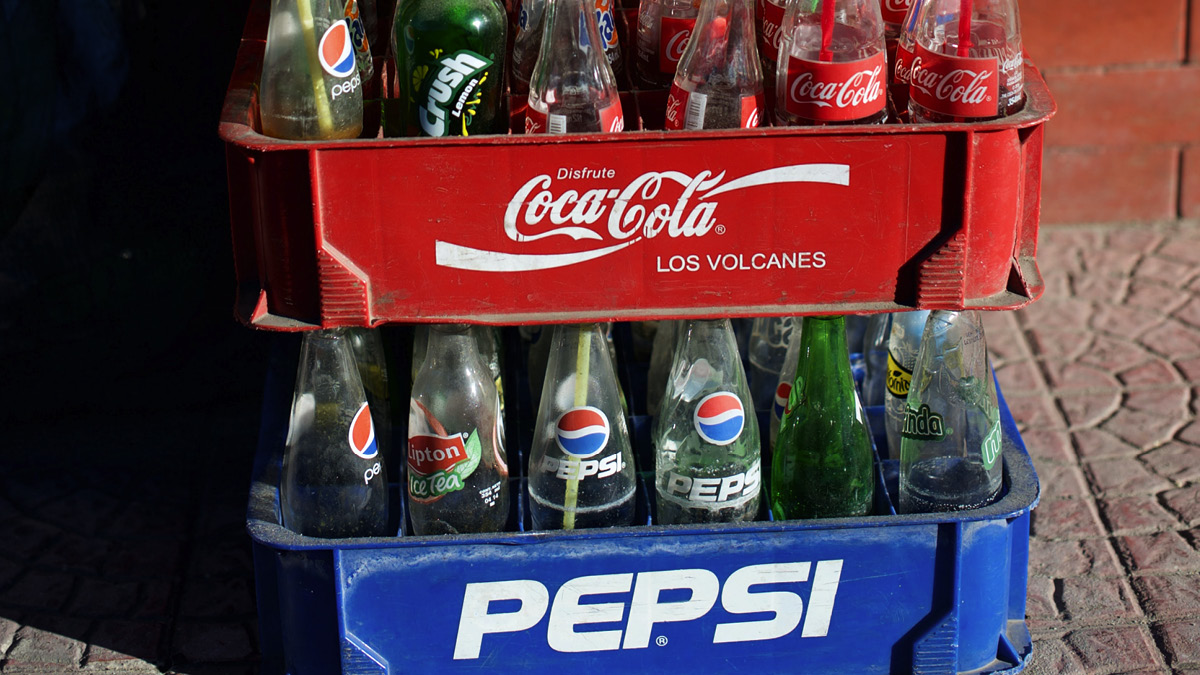
Pepsi versus Coke. BA versus Virgin Atlantic. McDonald’s versus Burger King. Running a successful company used to centre on beating the competition at all costs; the annals of business history are full of feuds between bitter rivals, including many that played out dramatically in the public eye.
Yet now, while the competition for consumers may be constant, behind the scenes you’re increasingly likely to see rivals getting together to collaborate on how best to run a successful sustainable business.
Collaboration for the common good
The reason for this change, according to Mike Barry, long-time director of sustainable business at Marks & Spencer who currently works as a consultant, is the enormity of the challenge to get to net zero. “When you were reducing your carbon footprint by 3 per cent a year or reducing plastic use by 2 per cent a year, you could do it on your own. But now with net-zero goals, we need to fundamentally rebuild value chains,” says Barry.
A retail value chain has billions of items being produced in factories and farms all over the world, which are then sold to millions of people. “You have to find a fundamentally different way of sourcing those raw materials, manufacturing them, using them as products and selling them,” he says. “No business can do that on its own.”
Archana Jagannathan, senior director for packaging sustainability in Europe at PepsiCo, agrees. “Collaboration is at the heart of sustainability,” she says. “If we truly want to deliver positive outcomes for people and planet, this is not just about one company. We’re looking to influence a system and critical to any system change is collaboration.”
Jagannathan has noticed a real shift in the scale of collaboration levels over the last few years. “There was always collaboration between sustainability leaders. But what’s really shifted is that conversation has now become a CEO conversation and an industry forum conversation,” she says.
An example is UNESDA (Union of European Soft Drinks Associations), whose members include PepsiCo, Coca-Cola and Red Bull. With its members full support, UNESDA has developed a Circular Packaging Vision for 2030, which pledges that all packaging will be recycled or renewable and 90 per cent of packaging waste will be collected.
The power of a third-party presence
The British Retail Consortium, which represents more than 170 UK-based retailers including Iceland, Sainsbury’s and M&S, has launched a net-zero goal for 2040, as has the National Farmers’ Union. Barry believes it’s crucial for companies to work with external third parties on such initiatives. “They’re competitors, so having a neutral big tent in which you can operate is really important,” he says.
Emilie Stephenson, who heads up the Force for Good division at Innocent Drinks in the UK, says the brand has found collaboration with other companies a lot easier since they became a B Corp in 2018. She says: “We can shout louder together about the change we want to see.”
There was always collaboration between sustainability leaders. But what’s really shifted is that conversation has now become a CEO conversation and an industry forum conversation
Darian Stibbe, executive director of The Partnering Initiative, an organisation that facilitates collaboration between companies, governments, NGOs and the United Nations, is sympathetic to the scepticism some companies may have at the start of the process. “They are genuine rivals expected to sit in a room together and somehow collaborate,” he says.
Stibbe refers to the importance of building the case internally. “We talk about the institutionalisation of partnerships,” he says. “They start between a few individuals, but it has to be made important to the broader company, with your internal network getting excited about it; to find things where your CEO can go and speak about this exciting new partnership publicly.”
Companies can expect tricky conversations with their lawyers, who understandably want to reduce risk for their organisations. “The reality is these partnerships are risky as they’re doing something new,” he says. But for Stibbe it’s not in the contract where you reduce risk, it’s in the way you run these partnerships with trust, transparency and a collective vision. “Making it clear you want to get value out of this co-operation, but also you’re there to help others get value from the collaboration too,” he says.
Innovating for the future
One of the cross-business collaborations PepsiCo’s Jagannathan is most excited about is Pulpex, the world’s first scalable, plastic-free paper-based bottle, which should go into production in 2021. Created by Diageo and Pilot Lite, it’s set to be trialled by PepsiCo and Unilever. “When you have more people adopting a technology, it’s easier for the company to be able to scale it up,” she says.
This kind of innovation is where business can really help drive change, according to Professor Knut Haanaes, head of sustainability at the International Institute for Management Development in Lausanne, Switzerland. “The world has problems governments can’t solve; we need the innovation of business,” he says. “We need the ability of business to drive new things at scale to build technology and capabilities.”
Haanaes finds it useful to look at great examples of swift action, innovation and collaboration from the past as potential templates for the future. “The ozone layer, where governments came in strong, there was agreement and companies adapted very quickly. The switch from leaded to unleaded gasoline and plastic waste in oceans. It’s not there yet, but it’s miles ahead of where it was three years ago. Industries collaborate, governments start to regulate and it becomes a virtuous circle,” he says. And all without a Cola war or dirty tricks campaign in sight.
